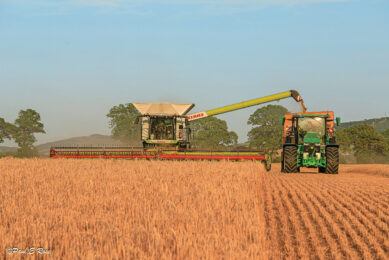Manufacturers hesitant to sell robot tractors

A farmer who wants to purchase a ready-to-use autonomous tractor has little choice. Manufacturers who have market-ready versions are hesitant to enter the market.
Every self-respecting manufacturer of agricultural tractorsagricultural tractors develops autonomous tractors or robot tractors or at least prototypes or design studies. Because autonomous tractors are the future in any case. Just as well as in automotive.
Farmers worldwide are eagerly awaiting for reliable autonomous tractors, such as the Australian arable farmer Gerrit Kurstjens. This progressive farmer has had experience with autonomous tractors since 2015. From now on, he shares his experiences and knowledge with autonomous tractors with Future Farming readers in his blog ‘The Autonomous Wizard of Oz’ every month.
Text continues underneath image
For this reason, dozens of robot tractors are under development worldwide. However, only a handful of manufacturers actually sell robot tractors, such as Farmtrac Escorts Kubota, Monarch and Yanmar. These autonomous tractors are only offered in a limited edition and (officially) only on the home market. For example, Kubota only supplies autonomous tractors for the Japanese market. For this reason, Kubota doesn’t want to be included in the Future Farming catalogue (yet).
Standard tractor with integrated autonomy
Its Japanese competitor Yanmar has provided all the necessary technical data and prices for our catalogue. The Yanmar robot tractors however, are also only for sale in Japan. Yanmar offers four models with engine ratings from 88 to 113 hp. Yanmar recently equipped its robot tractor series with an improved navigation system. Thanks to this upgrade, the purchase of a basic radio beacon station for precision navigation to within 3 centimetres is no longer necessary.
Text continues underneath image
New concept of robot tractor
The second and also last robot tractor in the current catalogue of autonomous tractors, is from American Monarch Tractor. The Monarch tractor is a completely new concept developed by a startup company in California. For example, the tractor has a fully electric drive system with components taken over from the automotive industry. Monarch is not very generous with technical details, such as how long the tractor can operate on fully charged batteries.
The Monarch robot tractor is also a fairly small tractor, with a maximum engine power of 70 hp, making the tractor suitable for light jobs only. The tractor was also primarily designed for use in vineyards and fruit cultivation. And for farmers who would like to contribute to the reduction of greenhouse gas emissions. Manufacturer Monarch is solely concentrating on its home market for the time, the USA.
Text continues underneath image
Proven hardware
Established tractor manufacturers such as Yanmar, (mostly) develop their robot tractors based on existing tractor models. In other words, a fully integrated autonomous operating system combined with proven hardware. That is also the great advantage of this type of robot tractor compared to autonomous field robots, for example. Field robots have yet to prove themselves in terms of both hardware and (software) autonomy.
If you buy an autonomous tractor, such as the Yanmar robot tractor, you can be sure that the hardware is based on decades of experience and development.
Moreover, you can always use the robot tractor as a standard tractor in daily practice, should there be a technical malfunction in the autonomous system. Or simply because the type of work requires a driver in the flesh. All in all, a robot tractor is a less risky investment compared to field robots. The robot tractor can always be sold later for the minimum value of a standard tractor of the same type, brand and operating hours.
Governments and insurance companies slow down adoption
There are several reasons why manufacturers are still so reluctant to sell their autonomous models. Firstly, autonomous technology is still young and therefore requires a high level of service and technical support. Secondly, laws and regulations worldwide are still lagging behind for the official admission of unmanned vehicles in agriculture.
So, if you offer an autonomous tractor, it is actually an illegal product under the law. Even in Japan, the country whose government is hugely stimulating the development of automation and robotisation in agriculture due to the high rate of its population aging, unmanned tractors are not allowed to operate without close supervision.
As long as governments and insurance companies do not make agreements for the official admission of unmanned vehicles in agriculture, there will be no storm with the supply of robot tractors for the time being. For the time being, farmers who would like to work with autonomous tractors have more options with autonomous retrofit kits. Look for these retrofit kits in the Future Farming catalogue.
Join 17,000+ subscribers
Subscribe to our newsletter to stay updated about all the need-to-know content in the agricultural sector, two times a week.



